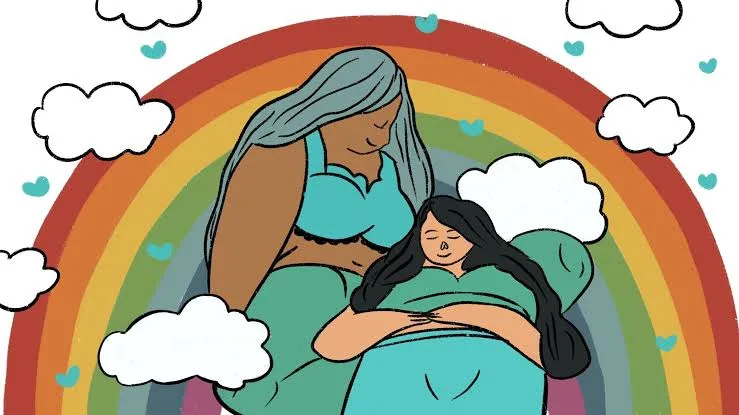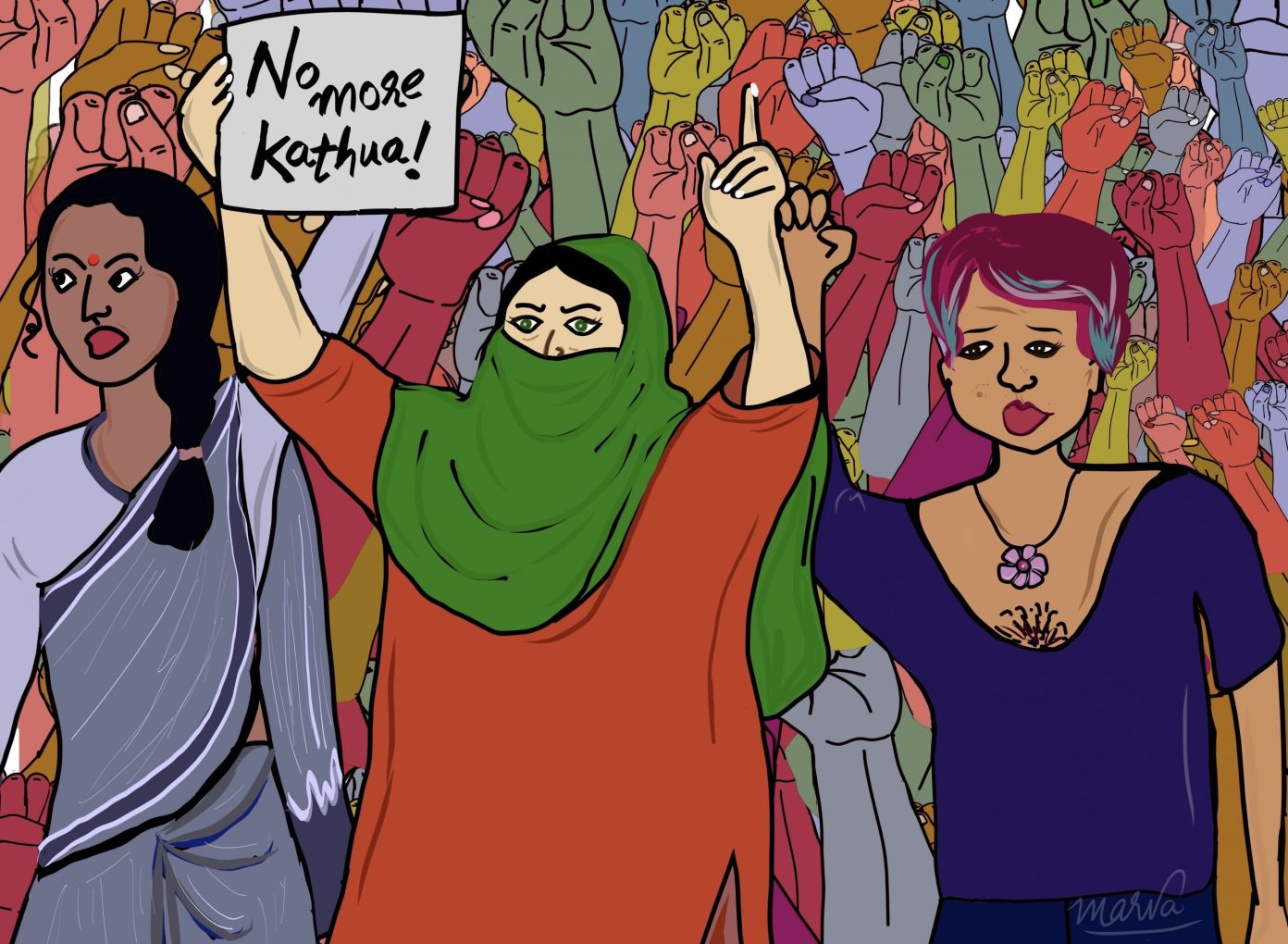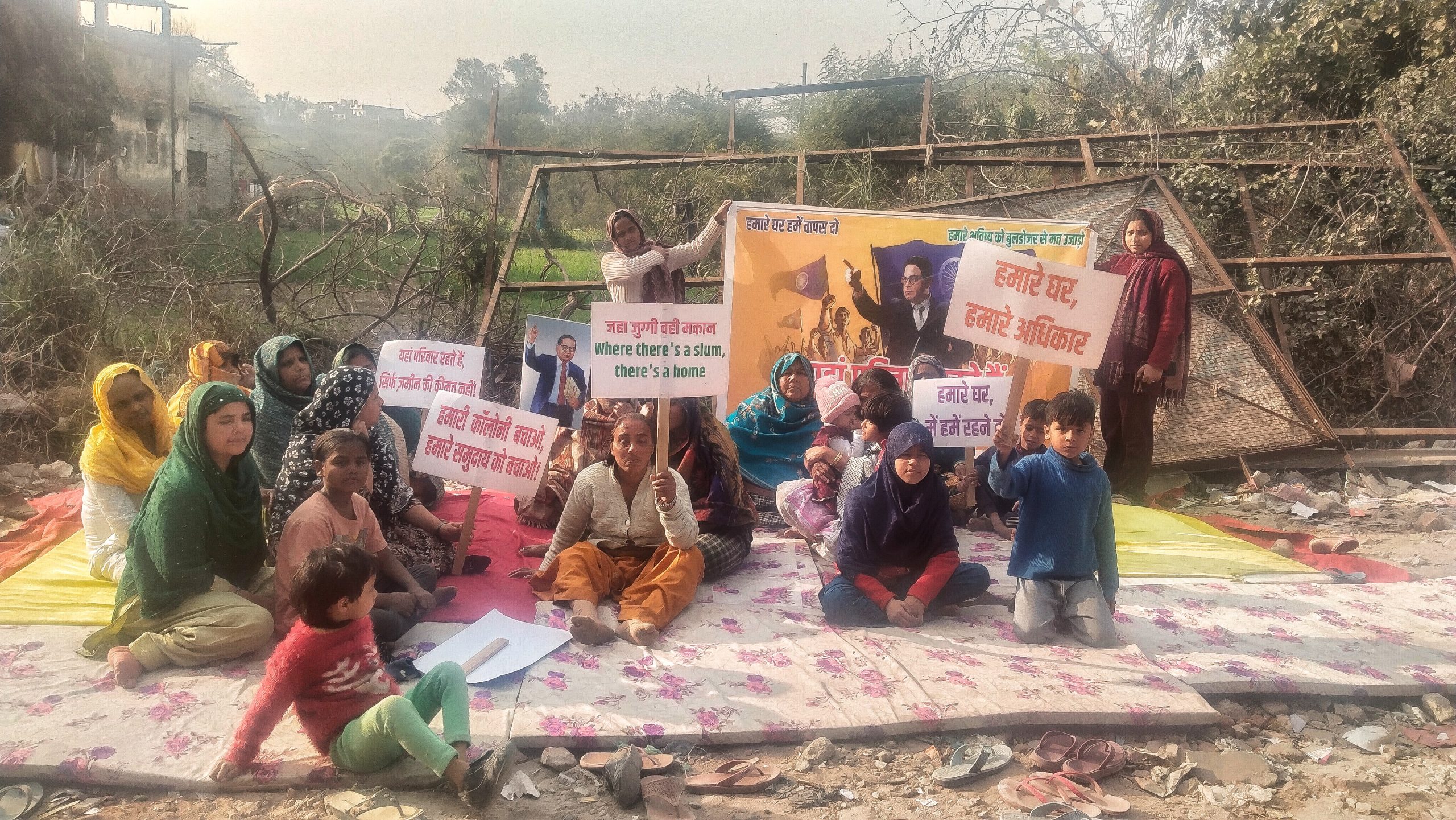The Bombay High Court has received yet another petition that exposes the grim realities that a queer couple face. A same-sex couple has moved to court to challenge Section 56(2)(x) of the IT Act. They have moved to court, challenging the constitutionality of the Income Tax (IT) Act, 1961. The petitioners have stated that their fundamental rights under Articles 14, 15, and 21 have been violated. A division bench, consisting of Justices B.P. Colabawalla and Firdosh P. Pooniwalla, issued notice to the Attorney General of India. He is expected to answer by the 18th of September, 2025. The petition brings to light the exclusionary framework of the Income Tax Act. The Act discriminates between same-sex and heterosexual couples, denying them equal privileges.
Denial of rights and financial inequalities
Denial of marital rights to same-sex couples not only places them as second-class citizens but also reflects governmental apathy to make their lives livable. The non-recognition of same-sex marriages makes queer couples face financial inequalities. Section 56(2)(x) of the Income Tax Act clearly states that ‘gifts received from relatives’ and ‘gifts received by an individual on his/her occasion of marriage’ will not be taxed. This places queer couples in a predicament. While ritualistic same-sex marriages can take place, their non-recognition will not allow queer couples to access the tax benefits.
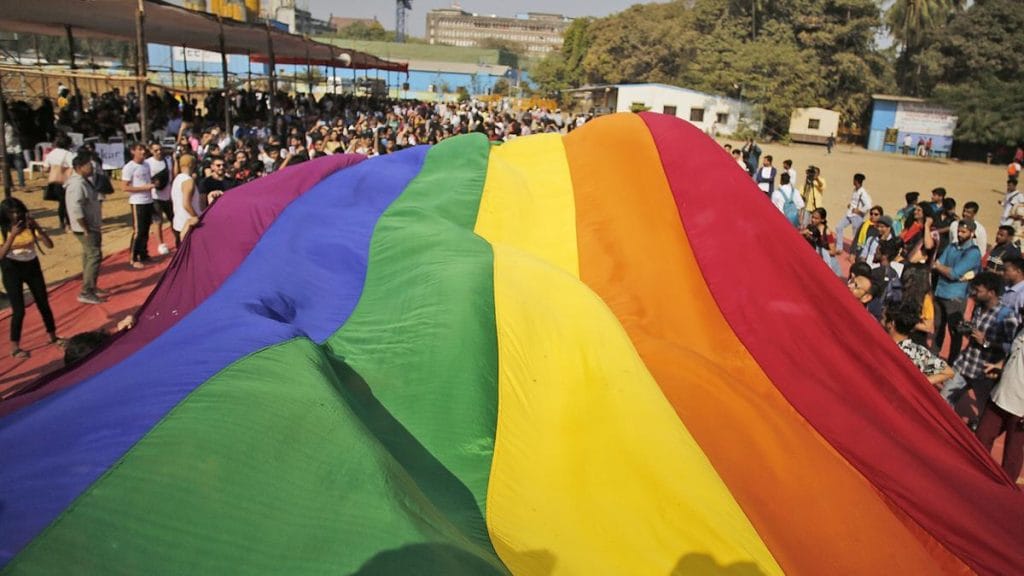
Marriage, in India, is a celebratory occasion, which includes the ritual of “gift-giving”. These “gifts” are often “monetary”. Since same-sex marriage has no constitutional validity, the “monetary” gifts will also be taxed. Thus, if a couple receives a monetary gift of one lakh rupees, according to the IT Act, tax will be levied on it.
Perspectives from legal officials
While notice has been issued to the Attorney General, it is highly unlikely that necessary changes will be made. Referring to the Marriage Equality Judgement, which denied the legal right to marital equality for queer couples, the Attorney General had made scathing remarks. The Attorney General, Venkataramani, along with the Solicitor General, Tushar Mehta, was completely opposed to extending marital rights to same-sex couples. The Attorney General of India had only expressed his acceptance of heterosexual marriages between biological men and women. His disregard for homosexual and queer couples allows us little hope for a positive reply.
The act has reduced “relatives” to spouses and consanguineal kins (blood/ancestral kins). After six decades, the Income Tax Act is set to witness changes from 2026. These changes, however, do not reflect any intention to correct the colonial remnant of Section 377. Post decriminalisation of homosexuality in 2018, the Income Tax Act should’ve been revised to help give queer couples an equal footing.
Tushar Mehta, the Solicitor General, holding the post of the second-highest legal official, has said, “All the questions in this case must be left to the Parliament.” He was of the opinion that giving marital legality to same-sex couples was a “complex” subject, which would have “profound social impact”. This not only reflects their indifference towards queer couples but also fosters an active exclusion from the constitutional framework. The petition also seeks to read “spouse” to include same-sex couples and treat them on par with heterosexual couples. This is to have similar “tax-exemption” rules for queer couples. Rohin Bhatt, in his book, The Urban Elite v. Union of India, referred to an article he wrote for The Hindu, ‘… marriage is a legitimate legal need to file taxes jointly, inherit property, open bank accounts and choose nominees for insurance policies…’
One of the four judgments which the court delivered unanimously held that the right to marriage was not a fundamental right and did not violate articles 14, 19(1)(a), and 21 of the Indian Constitution. This means that the current petition, which invokes the violation of Articles 14 and 21, will not stand in court as well. This is because the “fundamental right” to marry has been ruled out and will thus not apply to the same-sex couple.
Understanding section 56(2)(x) of the Income Tax Act, 1961
Section 56(2)(x) of the Income Tax Act of 1961 reads, ‘Any sum of money or property received by any person in the following circumstances shall not be chargeable to tax: (a) Gifts received from relatives**; (b) Gifts received by an individual on the occasion of his/her marriage …’
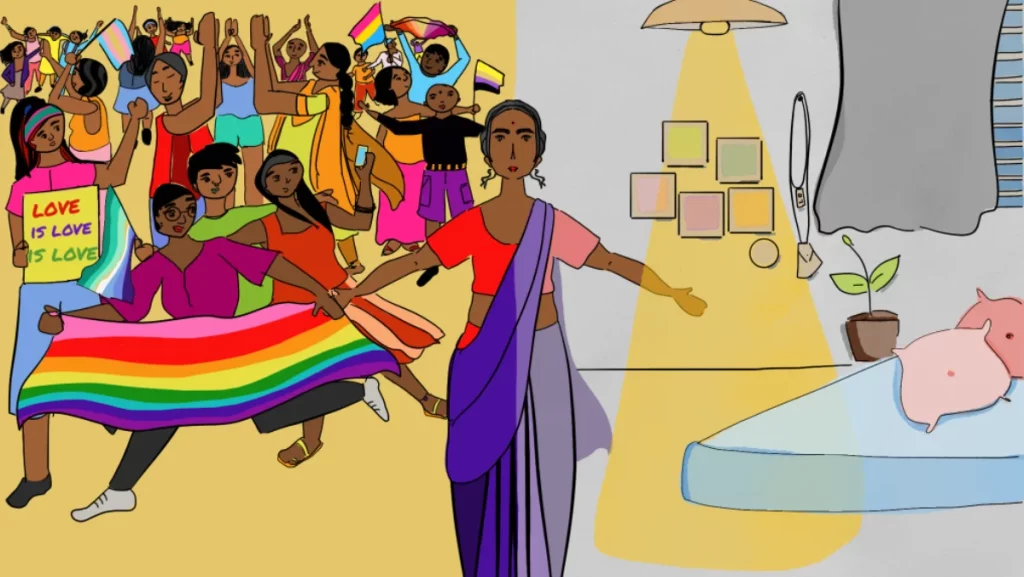
The act has reduced “relatives” to spouses and consanguineal kins (blood/ancestral kins). After six decades, the Income Tax Act is set to witness changes from 2026. These changes, however, do not reflect any intention to correct the colonial remnant of Section 377. Post decriminalisation of homosexuality in 2018, the Income Tax Act should’ve been revised to help give queer couples an equal footing. However, the changes that are to come forward focus on digital assets and aim to reduce “complexities”. The complexities, however, remain intact for queer couples.
Queer couples in India often face familial ostracism and channelling gifts through “relatives” only becomes redundant. A heterosexual couple will be showered with “gifts” to equip them for a new beginning, while a queer couple will be taxed on anything that breaches the mentioned limit.
While the opposition was protesting against the voter list revision in Bihar, the Income Tax Act was tabled and passed. Finance Minister Nirmala Sitharaman said, ‘These changes are not merely superficial; they reflect a new, simplified approach to tax administration. This leaner and more focused law is designed to make it easy to read, understand and implement.’ If changes to the Act can be introduced to keep up with the changing and ever-expanding digital currencies, it can also be amended to include tax benefits for queer couples. A “new” approach does not necessarily change anything for a queer and tax-paying citizen since they will be treated differently. If tax benefits are not being made available to queer citizens, can they stop paying taxes on their accounts?
Social and financial disparities
Queer couples in India often face familial ostracism, and channelling gifts through “relatives” only becomes redundant. A heterosexual couple will be showered with “gifts” to equip them for a new beginning, while a queer couple will be taxed on anything that breaches the mentioned limit. This not only highlights the differential social treatment but also the financial. Tax benefits should be accessible to every tax-paying citizen, and queer couples are no different. This differential treatment exposes a constitutional flaw which should not be left to the parliament to deliberate upon.
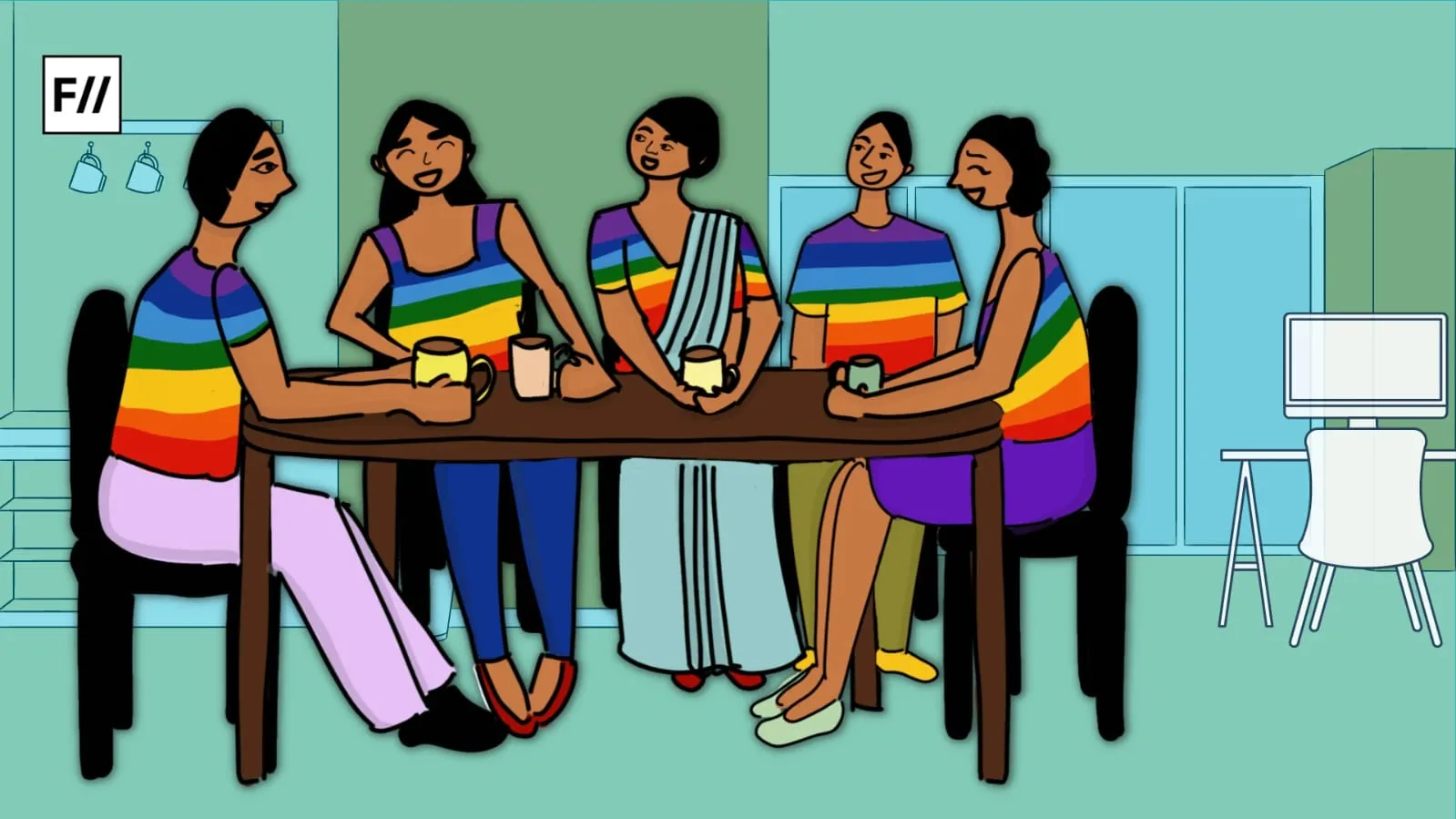
Research, based on the GILRHO (Global Index on Legal Recognition of Homosexual Orientation) dataset, has found that granting legal rights to LGB persons can result in an increase in real GDP per capita of approximately $2000. Thus, the research, which has been carried out using legal and economic data from 132 countries, has, along with other evidence from qualitative sources, found LGBT inclusion and economic development to be mutually reinforcing.
In essence, marital equality for same-sex couples should be read into law if every citizen is to be treated equally. The highest legal officials of the current government have upheld the judgment on marriage equality. While the government’s legal officials were bashed by the Supreme Court on account of considering marriage equality an elite issue, the parliamentarians were no different. Kiren Rijuju, the then Union Law Minister, insisted on a parliamentary deliberation to discuss issues that concern the entire populace and that it should reflect the “will” of the people. Sushil Modi, then a Rajya Sabha member of the Bharatiya Janata Party, said that, if allowed, marriage equality will ‘play havoc with the delicate balance of personal laws’. During the hearing, the centre submitted that it would form a committee to look into the “practical” issues, such as Provident Fund and pension benefits. It has been 2 years since the submission; the centre is yet to solve the mentioned issues. What irks one is the dismissal of “other” issues: who demarcates what is practical and what is not? The need of the hour is parliamentarians with sensibilities who can demonstrate the urgency of queer liberation. If not, queer lives would be stuck in between petitions and waiting endlessly for parliamentary redressal.
